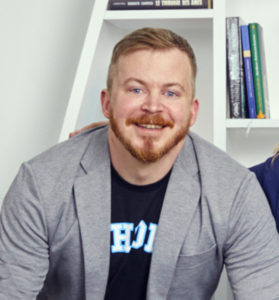By Dan Grey
“Europe needs more VCs with experience founding a startup.”
It’s a common sentiment in a market known for risk-averse investors focused on “number crunching,” which makes the idea worth further scrutiny.
In theory, the greater risk-appetite of founder-VCs would benefit founders by relieving pressure on due diligence. However, while raising money could get a little easier, the same is true for other startups competing for that capital. It might expedite the process, but it won’t necessarily change outcomes.


More critically, founder experience doesn’t appear to aid investor performance. A 2022 çalışma kağıdı itibaren Ulusal Ekonomik Araştırmalar Bürosu looked at investment outcomes for 13,000 U.S.-based VC firms. The results of that study, in terms of the percentage of successful investments, were as follows:
- Founder-VCs (successful startup): 29.8% (12.4% IPO)
- Founder-VCs (unsuccessful startup): 19.2% (7.1% IPO)
- Professional VCs: 23.3% (9.4% IPO)
From the paper’s cited 29.7% rate of entrepreneurial success for founders that become VCs, we can determine the following:
- Founder VCs (all): 22.3% (8.7% IPO)
So founder-VCs, in general, underperform vs. professional VCs. It’s a bitter pill to swallow, but it lines up with the data that suggests the risk-averse number crunchers have outperformed their peers across the pond for the past 20 years.
hale etkisi
An interesting component of this, which the study attempts to quantify, is the “halo effect.” It begins with how founders make their entry into VC: 89% of successful founders join a firm that invested in their company, compared to 85.4% of unsuccessful founders.
In theory, that should compound future success. Failed founders join firms that made a bad investment (likely worse), and successful founders join a firm that made a good investment (likely better). This introduces a spectrum of intangibles, such as brand strength of the firm, access to deal flow, trust from their partners, and quality of mentorship, which will shape these statistics.
The operator handicap
This is all very counterintuitive. Surely founder-VCs will have a better understanding of startup growing pains and a keener understanding of running and scaling a company. Shouldn’t they be the ideal partners?
Fred Wilson of Union Square Ventures, a legend of Silicon Valley, shared düşüncelerini on this back in 2017: “I think that VCs who aren’t handicapped by operating experience bring great respect for operators. And that helps a lot.”
Fundamentally, founders are executors and investors are strategists. They are highly complementary skills, but one could not typically do the job of the other and experience on the other side of the table can actually lead to confusion.
What ‘Europe needs more founder-VCs’ really means
The argument that we need less due diligence in venture capital is a hard sell after the past few years. Then you rule out performance and end up with one remaining concern: There is simply less money flowing into venture capital in Europe, and almost everyone would benefit if that were to change.
It just makes no sense to reflect this as pressure on VCs, who aren’t in control of the available inflows. Instead, the asset class needs to make itself appealing to bigger pools of institutional capital. For example, public pensions provide a staggering 65% of U.S. venture capital, but just 16% in Europe and 12% in the U.K.
This leaves two crucial lessons for all stakeholders in the future of European startup ecosystems:
- Venture capital needs to adopt better standards which enhance transparency and accountability, because European LPs are certainly also more conservative than their peers in the U.S. More capital requires greater accountability.
- Governments must also do what they can to enable and encourage institutions to invest in venture capital, which may also include enforcing such standards through regulation.
Dan Grey Gelişmekte olan pazarlardaki etki girişimcilerini destekleyen bir danışmandır ve pazarlama bölümünün başkanıdır. Eşitlik, başlangıç değerlemesi için bir platform.
İllüstrasyon: Dom Guzman


En son finansman turları, satın almalar ve daha fazlası ile güncel kalın
Crunchbase Günlük.
Uç nokta yönetimi, güvenlik ve izleme sağlayan NinjaOne, Teksas merkezli firmaya 231.5 dolar değerinde 1.9 milyon dolarlık C Serisi yatırım topladı…
Geçtiğimiz birkaç çeyrek, startup teknolojisi sektörlerine finansman sağlama konusunda durgun bir dönem oldu. Ancak Spacetech bunlardan biri değil. Son…
Faiz oranlarının 1'ün ilk yarısında bir noktada gerilemesi, ABD ekonomisinin dayanıklılığı ve son GSYİH ve enflasyon rakamlarıyla birleştiğinde, bu durum...
Crunchbase News'in çetelesine göre, 191,000 yılında ABD merkezli teknoloji şirketlerinde 2023'den fazla işçi toplu işten çıkarmalar nedeniyle işten çıkarıldı ve kesintiler…
- SEO Destekli İçerik ve Halkla İlişkiler Dağıtımı. Bugün Gücünüzü Artırın.
- PlatoData.Network Dikey Üretken Yapay Zeka. Kendine güç ver. Buradan Erişin.
- PlatoAiStream. Web3 Zekası. Bilgi Genişletildi. Buradan Erişin.
- PlatoESG. karbon, temiz teknoloji, Enerji, Çevre, Güneş, Atık Yönetimi. Buradan Erişin.
- PlatoSağlık. Biyoteknoloji ve Klinik Araştırmalar Zekası. Buradan Erişin.
- Kaynak: https://news.crunchbase.com/venture/europe-founder-vcs-gray-equidam/



